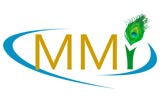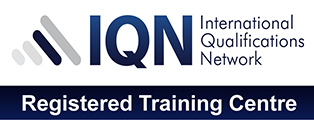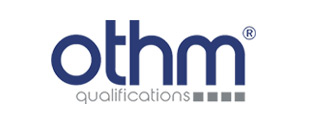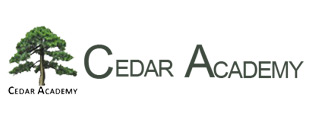Our Qualifications
- Certified Strategic Manager (IQN, UK)
- Certified Project Management Analyst (IQN, UK)
- Diploma in Human Resource Management (IQN, UK)
- Diploma in Marketing (IQN, UK)
- Diploma in Supply Chain Management (IQN, UK)
- Diploma in Business English (IQN, UK)
- Advanced Certificate in Business Management (Cedar Academy, Singapore)
- Advanced Certificate in Business Communication (Cedar Academy, Singapore)
- Professional Diploma in Business Management [Endorsed & Awarded by OTHM, UK]
- Professional Diploma in Business and Administration [Endorsed & Awarded by OTHM, UK]
- Professional Diploma in Human Resource Management [Endorsed & Awarded by OTHM, UK]
- Professional Diploma in Project Management [Endorsed & Awarded by OTHM, UK]
- Professional Diploma in Logistics and Supply Chain Management [Endorsed & Awarded by OTHM, UK]
- Professional Diploma in Marketing Management [Endorsed & Awarded by OTHM, UK]
- Professional Diploma in Hotel, Restaurant and Tourism Management [Endorsed & Awarded by OTHM, UK]
- Professional Diploma in Production and Quality Management [Endorsed & Awarded by OTHM, UK]
- Professional Diploma in Sales and Sales Promotion Management [Endorsed & Awarded by OTHM, UK]
- Professional Diploma in Financial Management [Endorsed & Awarded by OTHM, UK]
- Professional Diploma in Leadership [Endorsed & Awarded by OTHM, UK]
- Professional Diploma in Business Skills [Endorsed & Awarded by OTHM, UK]
- ❖ Contents
- Part A: Strategy Formulation
- 1. Objective
- 2. The external environment
- 3. Internal analysis
- 4. Strategic positioning I
- 5. Strategic positioning II
- Part B: Strategic Planning
- 6. The planning framework
- 7. Different approaches to strategic planning
- Part C: Strategy evaluation and selection
- 8. Strategy evaluation
- 9. Strategy selection
- Part D: Strategy implementation
- 10. Communication
- 11. Managing projects
- 12. Teams
- 13. Strategy implementation
- 14. Review and monitoring
- ❖ Contents
| Chapter 1 : | Project & Project Stakeholder |
| Chapter 2 : | Organisational Context for Projects |
| Chapter 3 : | Project Feasibility & Appraisal |
| Chapter 4 : | Project Appraisal: Sensitivity Analysis & Capital Rationing |
| Chapter 5 : | Project Phases |
| Chapter 6 : | Project Scope |
| Chapter 7 : | Project Tools & Techniques |
| Chapter 8 : | Project Budget & Risk Management |
| Chapter 9 : | Project Monitoring, Termination & Reporting |
- ❖ Contents
| Chapter 1 : | The Practice of HRM |
| Chapter 2 : | Organisation |
| Chapter 3 : | Factors Affecting Employee Behavior |
| Chapter 4 : | Learning & Development |
| Chapter 5 : | Human Resource Planning |
| Chapter 6 : | Recruitment |
| Chapter 7 : | Selection |
| Chapter 8 : | Monitoring & Managing Performance |
| Chapter 9 : | Reward Management |
| Chapter 10 : | Employee Relations |
| Chapter 11 : | Contemporary Concepts in HRM |
- ❖ Contents
| Chapter 1 : | Markets and Marketing |
| Chapter 2 : | The Marketing Process: Strategy and Planning |
| Chapter 3 : | Customer Focus |
| Chapter 4 : | The Marketing Environment |
| Chapter 5 : | Buying Behavior |
| Chapter 6 : | Market Segmentation and Positioning |
| Chapter 7 : | Product |
| Chapter 8 : | Place |
| Chapter 9 : | Pricing |
| Chapter 10 : | Promotion |
| Chapter 11 : | Services Marketing |
- ❖ Contents
| Chapter 1 : | Introduction and History |
| Chapter 2 : | Global Supply Chain Management |
| Chapter 3 : | Planning and Designing the Supply Chain |
| Chapter 4 : | Lean Supply Management |
| Chapter 5 : | Agile Supply Management |
| Chapter 6 : | Purchasing and Supplier Selection |
| Chapter 7 : | Supply Relationship and Integration |
| Chapter 8 : | The Present and future Challenges of SCM |
- ❖ Contents
- Section 1 _ Emails
- Unit 1 - Managing your inbox
- Unit 2 - Dealing with group emails
- Unit 3 - Dealing with long emails
- Section 2 _ Doing business
- Unit 4 - Understanding organizations
- Unit 5 - Managing schedules and budgets
- Unit 6 - Reading agendas and minutes
- Unit 7 - Reading Cvs and covering letters
- Unit 8 - Studying job descriptions
- Unit 9 - Analysing business reports
- Unit 10 - Reviewing annual reports
- Section 3 _ Marketing and advertising
- Unit 11 - Browsing advertisements
- Unit 12 - Product and service brochures
- Unit 13 - Exploring company websites
- Unit 14 - Social media
- Section 4 _ Business media and books
- Unit 15 - Reading the news
- Unit 16 - Business media websites
- Unit 17 - Analysing the money or personal finance section
- Unit 18 - Watching the markets
- Unit 19 - Reading business blogs
- Unit 20 - Reading business books
- ❖ Contents
- Managing and Performing
- The External and Internal Environments
- Managerial Decision Making
- Planning and Strategic Management
- Ethics and Corporate Responsibility
- Organization Structure
- Organizational Agility
- Human Resources Management
- Leadership
- Teamwork
- Communicating
- Managerial Control
- Managing Technology and Innovation
- Creating and Leading Change
- ❖ Contents
- Management and Leadership
- Adapting Organizations to Today’s Markets
- Production and Operations Management
- Motivating Employees
- Human Resource Management: Finding and Keeping The Best Employees
- Dealing with Employee-Management Issues and Relationships
- Marketing: Helping Buyers Buy
- Developing and Pricing Goods and Services
- Distributing Product
- Using Effective Promotions
- Understanding Accounting and Financial Information
- Financial Management
- Bonus Chapter B. Using Technology to Manage Information
- ❖ Contents
- Managing Human Resource
- Trends in Human Resource Management
- Providing Equal Employment Opportunity and a Safe Workplace
- Analyzing Work and Designing Jobs
- Planning for and Recruiting Human Resources
- Selecting Employees and Placing Them in Jobs
- Training Employees
- Managing Employees’ Performance
- Developing Employees for Future Success
- Separating and Retaining Employees
- Establishing a Pay Structure
- Recognizing Employee Contributions with pay
- ❖ Contents
- Modern Project Management
- Organization Strategy and Project Selection
- Organization:
- Structure and Culture
- Defining the Project
- Estimating Project Times and Costs
- Developing a Project Plan
- Managing Risk
- Scheduling Resources and Costs
- Reducing Project Duration
- Leadership: Being an Effective Project Manager
- Managing Project Teams
- Outsourcing: Managing Interorganizational Relations
- Progress and Performance Measurement and Evaluation
- Project Closure
- ❖ Contents
- The Context of Logistics
- Integrating the Supply Chain
- Logistics Strategy
- Implementing the Strategy
- Locating Facilities
- Planning Resources
- Controlling Material Flow
- Measuring and Improving
- Procurement
- Inventory Management
- Warehousing and Material Handling
- Transport
- Global Logistics
- ❖ Contents
- What do marketers do?
- The marketing environment
- Consumer and buyer behaviour
- Segmentation, targeting and positioning
- Market research
- Products, branding and packaging
- Providing Employee Benefits
- Collective Bargaining and Labor Relations
- Managing Human Resources Globally
- ❖ Contents
- THE HOSPITALITY INDUSTRY AND YOU
- FORCES AFFECTING GROWTH AND CHANGE IN THE HOSPITALITY INDUSTRY
- THE RESTAURANT BUSINESS
- RESTAURANT OPERATIONS
- RESTAURANT INDUSTRY ORGANIZATION: CHAIN, INDEPENDENT, OR FRANCHISE?
- COMPETITIVE FORCES IN FOOD SERVICE
- ON-SITE FOOD SERVICE
- ISSUES FACING FOOD SERVICE
- LODGING: MEETING GUEST NEEDS
- HOTEL AND LODGING OPERATIONS
- FORCES SHAPING THE HOTEL BUSINESS
- COMPETITION IN THE LODGING BUSINESS
- TOURISM: FRONT AND CENTER
- DESTINATIONS: TOURISM GENERATORS
- THE ROLE OF SERVICE IN THE HOSPITALITY INDUSTRY
- ❖ Contents
- Competitiveness, Strategy, and Productivity
- Forecasting
- Product and Service Design
- Strategic Capacity Planning for Products and Services
- Process Selection and Facility Layout
- Design of Work Systems
- Location Planning and Analysis
- Management of Quality
- Quality Control
- Inventory Management
- ❖ Contents
- Development and role of selling in marketing
- Sales strategies
- Consumer and organisational buyer behavior
- Sales settings
- Law and ethical issues
- Sales responsibilities and preparation
- Personal selling skills
- Key account management
- Internet and IT applications in selling and sales management
- Sales forecasting and budgeting
- Sales force evaluation
- ❖ Contents
- Introduction to Financial Management
- Reviewing Financial Statements
- Analyzing Financial Statements
- Time Value of Money 1: Analyzing Single Cash Flows AND
- Time Value of Money 2: Analyzing Annuity Cash Flows
- Understanding Financial Markets and Institutions AND
- Valuing Bonds
- Valuing Stock
- Characterizing Risk and Return AND
- Estimating Risk and Return
- Calculating the Cost of Capital
- Estimating Cash Flows on Capital Budgeting Projects
- Weighing Net Present Value and Other Capital Budgeting Criteria
- Working Capital Management and Policies
- Financial Planning and Forecasting
- Assessing Long-Term Debt, Equity, and Capital Structure
- Sharing Firm Wealth: Dividends, Share Repurchases, and Other Payouts
- Issuing Capital and the Investment Banking Process
- ❖ Contents
- Introduction: The Nature of Leadership
- Nature of Managerial Work
- Effective Leadership Behavior
- Leading Change and Innovation
- Participative Leadership and Empowerment
- Leadership Traits and Skills
- Contingency Theories and Adaptive Leadership
- Power and Influence Tactics
- Dyadic Relations and Followers
- Leadership in Teams and Decision Groups
- Strategic Leadership in Organizations
- Charismatic and Transformational Leadership
- Developing Leadership Skills
- ❖ Contents
- Learning and Skills
- Working in Teams
- Effective Reading Skills
- Developing Good Writing Skills
- Presentation Communication
- Business Calculations
- Thinking and Memory Skills
- Project Management Skills
- Social Skills
- Leadership, Coaching and Mentoring Skills
- Careers and ‘Futuring’ Skills
- Pricing strategies
- Distribution
- Marketing communications and promotional tools
- Marketing planning, implementation and control
- International marketing
- 21st century marketing




